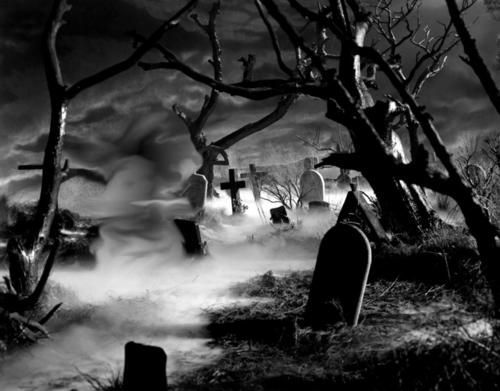Verse 11:[1] (Rev. 2:7; 13:9) He that hath an ear, let him hear what the Spirit saith unto the churches; He that overcometh shall not be hurt of (Rev. 20:14; 21:8) the second death.
[He that hath, etc.] See Revelation 2:7 (Grotius).
[To the Churches] Namely, of Smyrna, and to others of the same ἐπισκοπῆς/bishopric (Grotius). They each ought to hear the word of God as if it had been spoken to them alone (Durham).
[He that overcometh] He that will suffer himself to be overcome neither by poverty, nor by prison, nor by a more oppressive fear (Grotius): not he that indulges himself, yields to temptations of all sorts, appears to be diligent for a time (Durham).
He that hath an ear, let him hear what the Spirit saith unto the churches; He that overcometh: for the opening of these passages, see the notes on Revelation 2:7.

[Not, etc., οὐ μὴ ἀδικηθῇ, etc.] He shall not be hurt (or, he shall suffer the loss of nothing [Syriac]: For he that suffers injury is injured by them; therefore, the Chaldean נָזַק, Ezra 4:13;[2] Daniel 6:2,[3] and the Greek ἀδικεῖν, to wrong, are taken for to hurt by μετάληψιν/metalepsis[4] [Grotius]) by the second death (Pagnine, Illyricus, Tigurinus, Castalio, etc.). The first death is of the body; the second, of the soul, when it is condemned to eternal damnation (Ribera, Menochius, Drusius, Piscator, etc.). Death is twofold, both of the body and of the soul: the first death of the soul is sin; the second, the casting out of the presence of God forever: the first death, that of the body, is the separation of the soul; the second, of eternal torment (Estius). You have mention of the second death in Revelation 20:6, 14, and in the Chaldean Paraphrase of Deuteronomy 33:6[5] and Isaiah 22:14,[6] where Kimchi explains it as death of the soul in the future age (Grotius).
Shall not be hurt of the second death; we read of the second death, Revelation 20:6, 14: the meaning is, that he shall escape the eternal damnation of soul and body in the day of judgment.
Those that make these epistles prophetical say, that the church of Smyrna was a type of all the churches of Christ to the year 325, (when Constantine overcame Lycinius, and gave rest and peace to the churches of Christ,) which was all a time of severe persecution under the Roman emperors, who to that time were all heathens. It is very observable, that Christ blameth nothing in this church; the church of God keeps always its purity best in the fire; but doubtless there were in this time many apostasies, and other errors, but God allows much to his people’s temptations; hence, though Job showed much impatience, yet we are called to behold him as a pattern of patience.
[1] Greek: ὁ ἔχων οὖς ἀκουσάτω τί τὸ Πνεῦμα λέγει ταῖς ἐκκλησίαις. ὁ νικῶν οὐ μὴ ἀδικηθῇ ἐκ τοῦ θανάτου τοῦ δευτέρου.
[2] Ezra 4:13: “Be it known now unto the king, that, if this city be builded, and the walls set up again, then will they not pay toll, tribute, and custom, and so thou shalt endamage (תְּהַנְזִק) the revenue of the kings.”
[3] Daniel 6:2: “And over these three presidents; of whom Daniel was first: that the princes might give accounts unto them, and the king should have no damage (נָזִק).”
[4] A metalepsis is a figure of speech: here, one thing, to wrong, is referred to by means of its consequence, to harm.
[5] Targum Onkelos of Deuteronomy 33:6: יֵיחֵי רְאֻובֵן בְחַיֵי עָלְמָא וּמוֹתָא תִניָנָא לָא יְמֻות וִיקַבְלֻון בְנוֹהִי אַחסָנַתהוֹן בְמִניָנֵיהוֹן׃, Let Reuben live in life eternal, and not die the second death; and let his children receive their inheritance according to their numbers.
[6] Targum Jonathan of Isaiah 22:14: אְמַר נְבִיָא בְאֻודנַי הְוֵיתִי שָׁמַע כַד אִתגְזַרַת דָא מִן קְֹדָם יויֵ צְבָאוֹתֵ אִם יִשׁתְבֵיק חֻובָא הָדֵין לְכוֹן עַד דִתמֻותֻון מוֹתָא תִניָנָא אְמַר יוי אְלֹהִימֵ צְבָאוֹתֵ׃, The prophet said, with mine ears I was hearing when this was decreed from before the Lord of hosts, namely, that this your iniquity shall not be forgiven you till you die the second death, said the Lord, the God, the God of hosts.
Dr. Dilday's Sermon: "Victory over the Second Death"
https://www.sermonaudio.com/sermoninfo.asp?SID=516102022456
1) Introduction
2) Analysis
a) Context
b) Verse 11
i) “He that hath an ear, let him hear what the Spirit saith unto the churches”
ii) “He that overcometh shall not be hurt of the second death”
3) Excursus: practical eschatology
William Tong (for Matthew Henry): 'The conclusion of this message, and that, as before, 1. With a call to universal attention, that all men, all the world, should hear what passes between Christ and his churches—how he commends them, how he comforts them, how he reproves their failures, how he rewards their fidelity. It concerns all the inhabitants of the world to observe God's dealings with his own people; all the world may learn instruction and wisdom thereby. 2. With a gracious promise to the conquering Christian: He that overcometh shall not be hurt of the second death, Revelation 2:11. Observe, (1.) There is not only a first, but a second death, a death after the body is dead. (2.…
Belgic Confession 24 (Man's Sanctification and Good Works): ' In the meantime we do not deny that God rewards our good works, but it is through His grace that He crowns His gifts (Revelation 2:11). Moreover, though we do good works, we do not found our salvation upon them; for we can do no work but what is polluted by our flesh, and also punishable; and although we could perform such works, still the remembrance of one sin is sufficient to make God reject them. Thus, then, we would always be in doubt, tossed to and fro without any certainty, and our poor consciences would be continually vexed if they relied not on the merits of the suffering a…